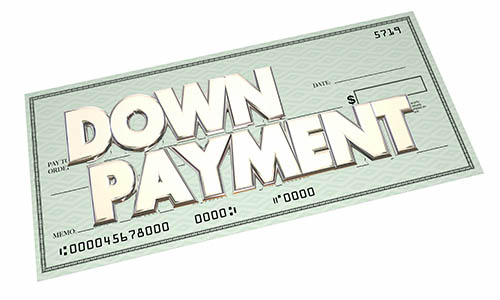Mortgage Myths: Here’s Why You Don’t Need a Full 20 Percent Down Payment
 If you’re just getting into the real estate market, you may have heard that 20% down is the ideal percentage in order to lower your monthly payments and get your mortgage application approved. However, while 20% is often suggested, many people struggle to come up with this amount of money. If you’re staving off home ownership, here are some reasons you may not need to hold off as you long as you thought.
If you’re just getting into the real estate market, you may have heard that 20% down is the ideal percentage in order to lower your monthly payments and get your mortgage application approved. However, while 20% is often suggested, many people struggle to come up with this amount of money. If you’re staving off home ownership, here are some reasons you may not need to hold off as you long as you thought.
Minimizing Your Insurance Costs
Putting down 20% of the total purchase price of your home is often suggested, but it doesn’t definitively mean that your application won’t be approved if you don’t. If you have a good credit score and are in good financial standing, putting less than 20% down means you’ll have to pay Private Mortgage Insurance (PMI); however, it can be worth paying the extra funds in order to get into the real estate market sooner and start paying into your most significant investment.
Mortgage Programs For Less Than 20%
It may seem less possible to buy a home if you only have 5 or 7% of the purchase price, but there are many programs in the United States that enable those with limited funds to apply for a mortgage. From the Federal Housing Administration (FHA) to Fannie Mae and Freddie Mac, there are many lenders that can offer you mortgage programs that will work for your situation. While higher rates come in tandem with a lower down payment, there are options out there for those who haven’t saved quite enough.
Why Put Down 20%?
Putting down 20% is not a necessity for mortgage approval or purchasing a home, but it can be a great means of saving money in the long run and reducing your interest rates. If you’re raring to get into the real estate market and don’t want to wait for the bills to stack up, that’s OK, but if you want to hold off and save up additional funds before diving in, this can mean more money and a more solid investment in the future.
20% is often the magic number when it comes to a down payment on a home, but you don’t require this percentage of your home’s price in order to get approved for a mortgage. If you’re currently considering diving into home ownership and would like to know more about the opportunities in your area, contact your local mortgage professional for more information.

 There are so many details that lead up to the purchase of your dream home that it can be hard to realize it when the closing day is finally upon you. However, when closing day finally arrives, there will still be a few last minute details that need to be taken care of. If you’re getting ready to solidify your home purchase and are wondering about the remaining paperwork and any unknown details, here are some things you can expect when it comes to making your purchase complete.
There are so many details that lead up to the purchase of your dream home that it can be hard to realize it when the closing day is finally upon you. However, when closing day finally arrives, there will still be a few last minute details that need to be taken care of. If you’re getting ready to solidify your home purchase and are wondering about the remaining paperwork and any unknown details, here are some things you can expect when it comes to making your purchase complete. There are few things more exciting than finding your ideal home, but with the rising cost of housing, a person’s dream home can often come with a very high purchase price. If you’re wondering how much home you can truly afford and how your cost of living will fare for your mortgage approval, here are some of the details on what you can expect when it comes to finding a home at an affordable price.
There are few things more exciting than finding your ideal home, but with the rising cost of housing, a person’s dream home can often come with a very high purchase price. If you’re wondering how much home you can truly afford and how your cost of living will fare for your mortgage approval, here are some of the details on what you can expect when it comes to finding a home at an affordable price.